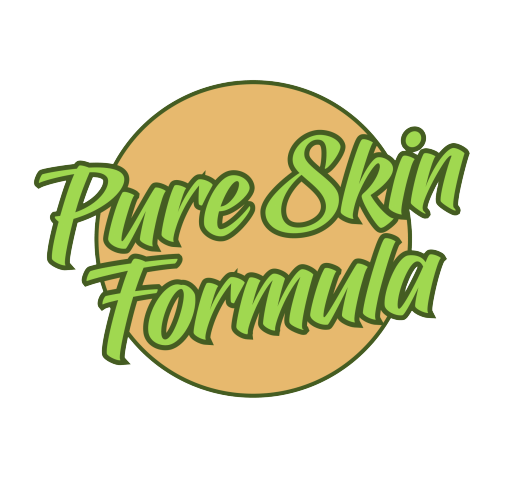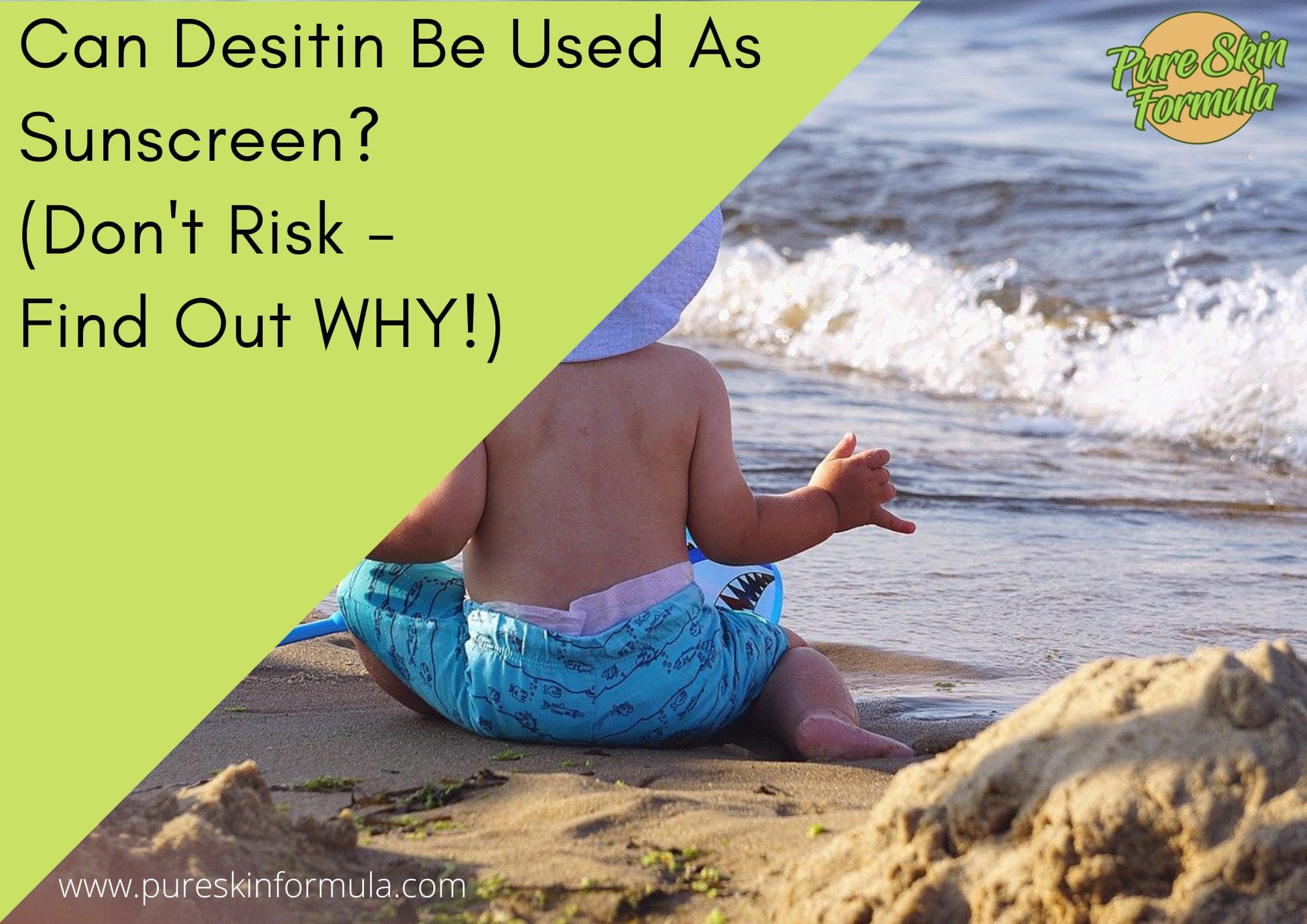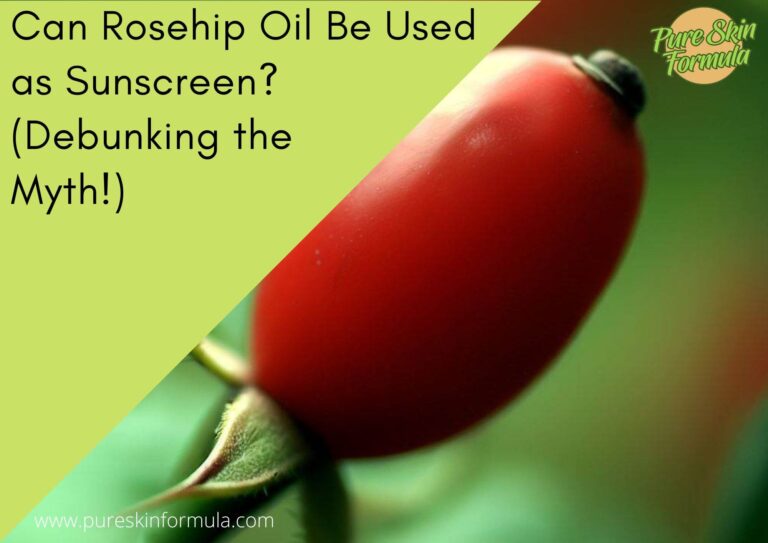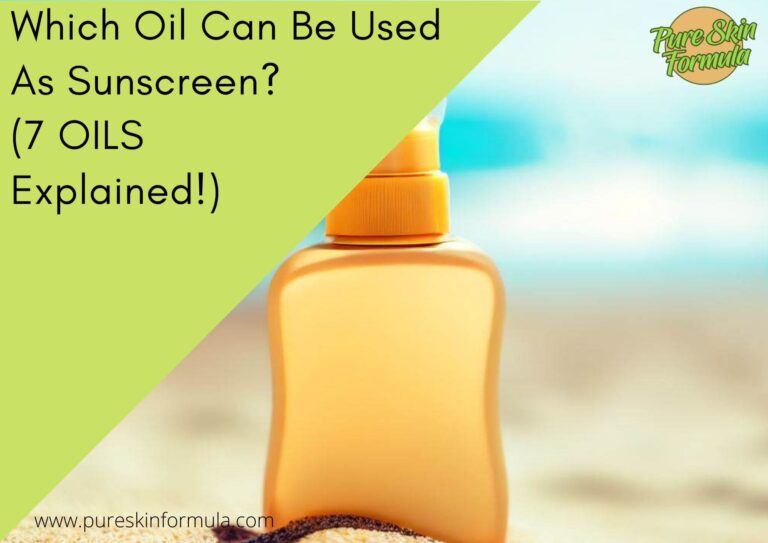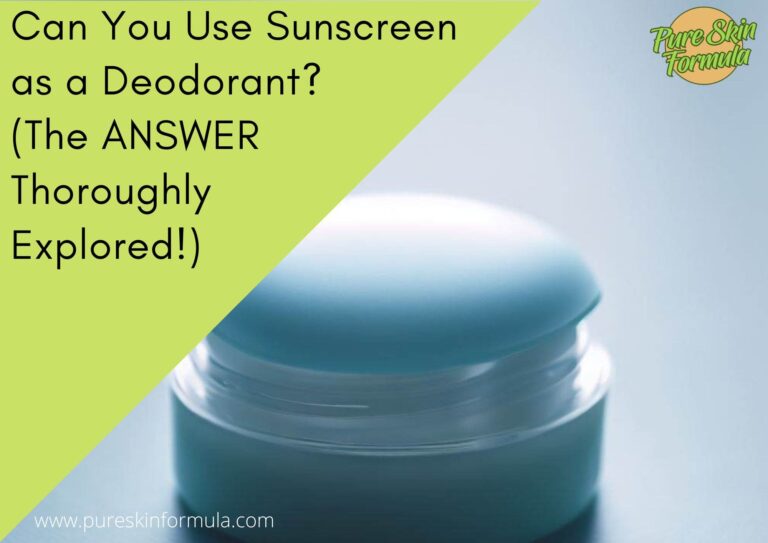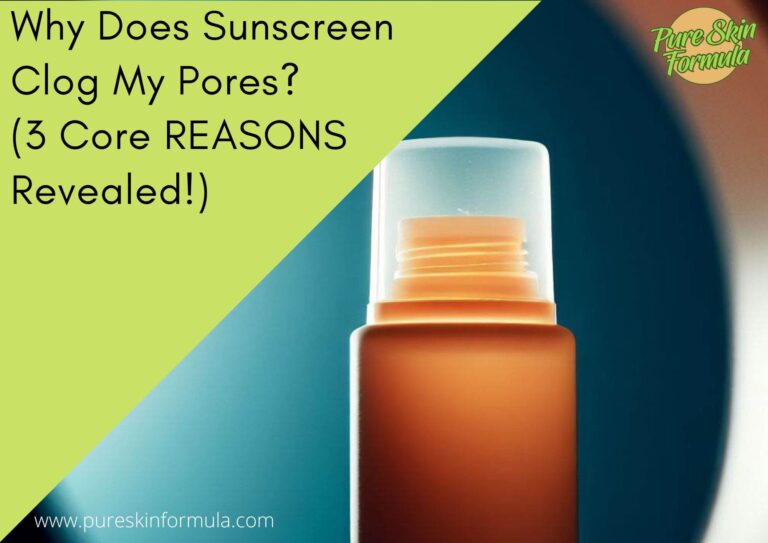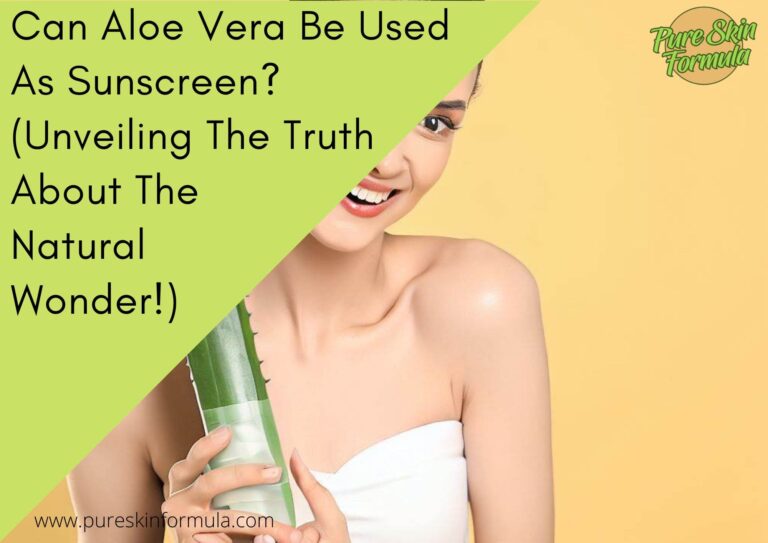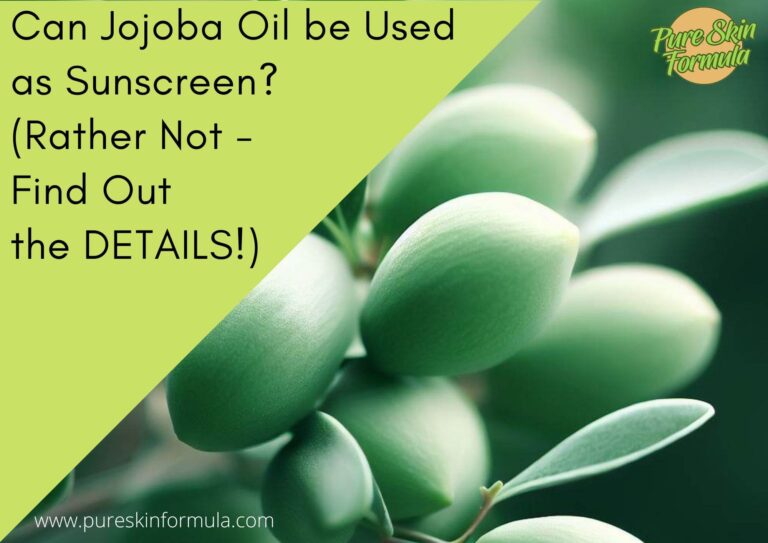Are you in a pinch and wondering if Desitin, the trusted diaper rash cream, can pull double duty as a sunscreen? You’re not alone.
Using Desitin as a substitute for sunscreen may seem appealing, but is it a wise choice? This blog post delves into sun protection to determine whether Desitin can shield you from harmful UV rays.
I’ll explore the ingredients, analyze their sun-protective properties, and discuss their limitations and risks.
So, if you’re curious about the potential sun-blocking powers of Desitin, keep reading to uncover the truth and make an informed decision when it comes to protecting your skin.
Can Desitin be used as sunscreen?
No, Desitin should not be used as a substitute for sunscreen. Desitin’s primary purpose is to create a protective barrier on the skin to treat and prevent diaper rash.
While it contains zinc oxide as one of its main ingredients, which provides some sun-protective properties, it is not formulated or tested to meet sunscreen standards.
Sunscreen is specifically designed to protect the skin from the harmful effects of UVA and UVB rays, which can cause sunburn, premature aging, and increase the risk of skin cancer.
It undergoes rigorous testing to determine its SPF (Sun Protection Factor) and ability to provide broad-spectrum protection.
To ensure adequate sun protection, it is recommended to use a dedicated sunscreen with a broad-spectrum SPF of 30 or higher.
Let’s go further into this topic.
Introduction to Desitin and its primary use as a diaper rash cream
Desitin is a well-known brand that has gained popularity in treating and preventing diaper rash. As any parent knows, diaper rash can cause discomfort and irritate infants. Desitin comes to the rescue as a reliable solution to soothe and protect their delicate skin.
Desitin’s effectiveness lies in its carefully selected ingredients that work together to combat this skin issue. One of the critical ingredients is zinc oxide, a versatile compound that forms a protective barrier on the skin.

This barrier helps to shield the sensitive baby’s skin from irritants such as urine and feces, which can exacerbate diaper rash.
Desitin contains other ingredients like petrolatum, cod liver oil, and lanolin. Petrolatum acts as an emollient, helping to moisturize and soften the skin. Cod liver oil brings essential fatty acids to the mix, nourishing and healing the affected area.
Lanolin, known for its soothing properties, relieves discomfort and reduces inflammation.
Combining these ingredients, Desitin creates a powerful formula that provides a protective barrier and helps calm and heal irritated skin. It alleviates the discomfort, allowing babies to feel more at ease and comfortable during diaper changes.
But here comes the question:
Can Desitin protect against sunburn?
While Desitin contains zinc oxide, a common ingredient in physical sunscreens, it is not explicitly formulated or tested to meet sunscreen standards. Sunscreens undergo rigorous testing to determine their effectiveness in protecting against UVA and UVB rays.

So, while Desitin may provide some sun protection due to its zinc oxide content, it may offer a different level of protection than a dedicated sunscreen.
Desitin does not indicate its Sun Protection Factor (SPF), a sunscreen’s ability to protect against sunburn-causing UVB rays. Recommended SPF levels for adequate sun protection typically range from SPF 30 to SPF 50+.
Using sunscreens that provide broad-spectrum protection against UVA and UVB rays is essential. Products with higher SPF values generally offer excellent protection, but reapplying them regularly is essential, especially after swimming or sweating.
Possible side effects or adverse reactions
Another aspect to consider when using Desitin as a sunscreen is the potential for side effects or adverse reactions. While Desitin is generally safe for use as a diaper rash cream, using it on larger areas of the body, such as for sunscreen purposes, may increase the risk of adverse reactions.
These reactions range from skin irritation and allergies to clogged pores and acne breakouts. Desitin may not be as cosmetically appealing as dedicated sunscreens, as it can leave a white residue on the skin.
Overall, it’s essential to prioritize your skin’s health and protection regarding sun exposure. Relying solely on Desitin as a sunscreen may present limitations and risks.
The importance of using sunscreen
The sun emits different types of UV rays, namely UVA and UVB. Both types can cause damage to your skin. UVA rays penetrate deep into the skin, leading to premature aging and increasing the risk of skin cancer. UVB rays are responsible for sunburns.
To safeguard your skin comprehensively, choosing a sunscreen that offers broad-spectrum protection, shielding you from UVA and UVB rays, is essential. By using such a broad-spectrum product, you’re taking a proactive step in preventing sunburn and premature aging and reducing the risk of skin cancer.
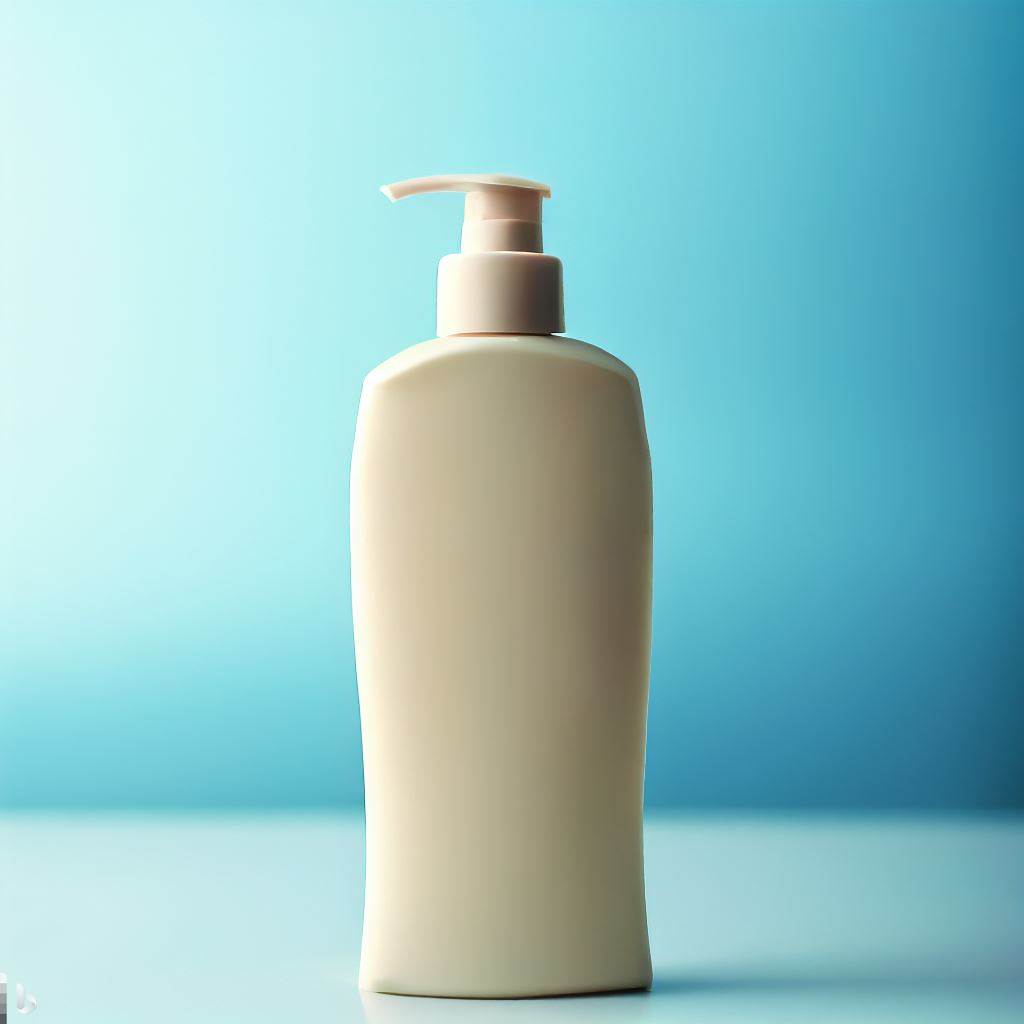
Using sunscreen should be a non-negotiable part of your sun protection routine. It is good to reapply every two hours or more frequently if you’ve been swimming or sweating.
It’s also essential to combine sunscreen with other protective measures, such as seeking shade during peak sun hours, wearing protective clothing, and using sunglasses and wide-brimmed hats.
By integrating sunscreen into your overall sun protection routine, you’re taking proactive steps to safeguard your skin’s health, maintain its youthful appearance, and reduce the risk of skin cancer.
Yes, finding the right sunscreen for you may involve trial and error. What works best for one person may not be suitable for another. It’s a good idea to read reviews, check for recommendations from skincare professionals, and consider your skin’s needs when selecting a sunscreen.
By exploring trusted brands and products, you can discover a sunscreen that fits your preferences and provides reliable sun protection.
To wrap it up
While Desitin may contain some sun protection ingredients, it is crucial to recognize that it is primarily designed as a diaper rash cream, not a sunscreen.
Relying solely on Desitin for sun protection may lead to inadequate defense against harmful UVA and UVB rays, leaving your skin vulnerable to sunburn, premature aging, and an increased risk of skin cancer.
To ensure proper sun protection, it is recommended to use dedicated sunscreens that offer broad-spectrum coverage and have been tested for their efficacy. Your skin deserves the best protection, so choose a reliable product and incorporate it into your daily sun care routine for healthier and safer sun exposure.
Thank you for reading!
Valeria
